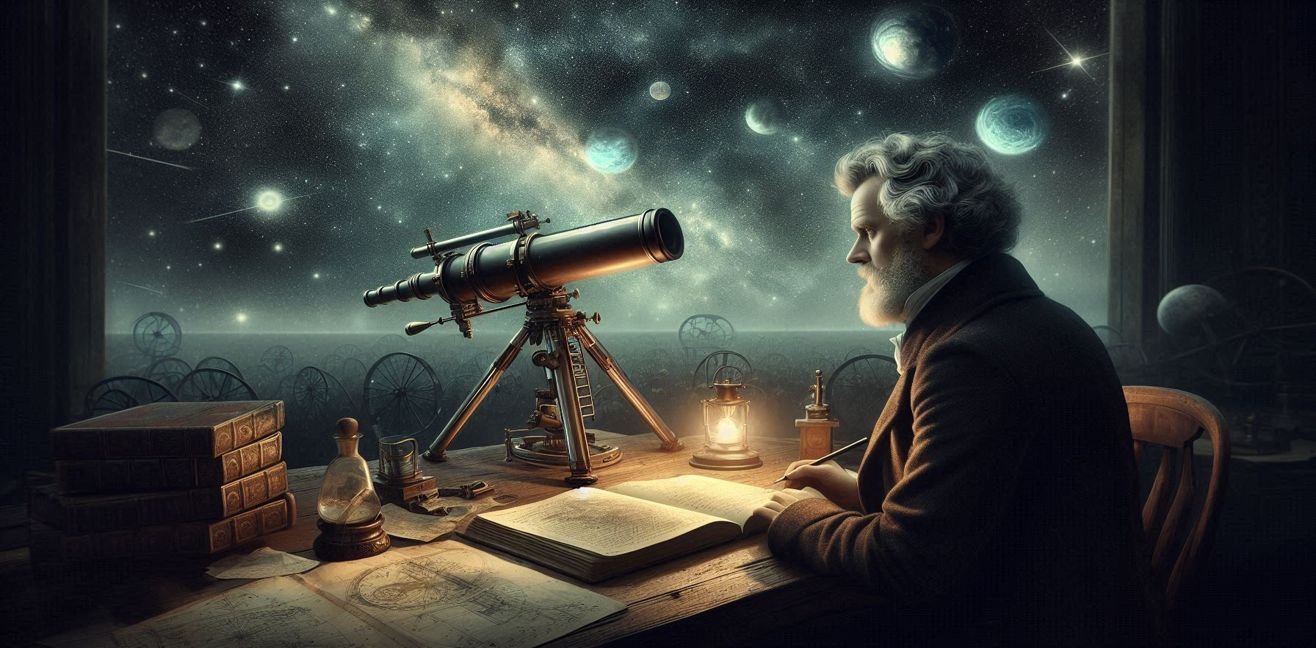Imagine… 1792, England. A tiny baby is born who might already have been captivated by the magic of stars. Who knows? But one thing is certain: Herschel would approach the sky not as an ordinary observer, but as an explorer, a researcher, and a scientist. ✨
His father, William Herschel, was a giant in the world of astronomy, famous for discovering Uranus. Young John grew up surrounded by his father’s laboratory, telescopes, and star charts. Astronomy was practically in his DNA. Yet John was determined not to live in his father’s shadow—he wanted to chart his own course.
Scientific Contributions and Discoveries 🧬🔭
John Herschel’s impact on astronomy goes far beyond “looked, saw, and took notes.” He devoted his life to observing the sky systematically, meticulously, and scientifically. Here are some of his most important contributions:
Southern Hemisphere Observations 🌏
In 1834, Herschel left England behind and traveled to South Africa. There, he set up his telescope and scanned the southern sky, discovering thousands of stars, nebulae, and star clusters. These discoveries were critical for completing our map of the heavens.
Stellar Photometry 💡
Herschel didn’t just observe stars—he measured them! He carefully recorded their brightness and positions. This work laid the foundations of modern photometry. In a sense, he treated the sky as a laboratory, with each star like a little test tube.
Astronomical Telescopes and Optical Work 🔬
Following in his father’s footsteps, Herschel worked on building and improving telescopes. Sharper, more powerful telescopes allowed him to study the stars in greater detail. You could say he pushed telescopic technology to its limits, turning the night sky into his stage.
Astronomy Through Photography and Chemistry 🧪📸
Herschel used not only his eyes but also chemistry to record the heavens. Though not exactly photosynthesis, he developed chemical methods to capture light and document celestial objects. These efforts made him a pioneer of modern astronomical photography.
Life and Personality 🌟
Herschel was known not just for science but also for curiosity and humor. He sometimes added witty remarks in his observation notes, commenting on a star’s brightness with lines like, “You nearly blinded me!” His discipline and meticulousness were the foundation of his scientific achievements.
During his South African observations, he braved harsh conditions, setting up his telescope and scanning the sky for hours. Some nights he counted stars; other nights he discovered new nebulae. For him, the sky wasn’t merely a view—it was a treasure waiting to be explored. 🌌
Importance of His Contributions 🏆
John Herschel’s work influenced not only his contemporaries but also generations to come. His systematic observations helped form star catalogs. His contributions to photometry and telescope technology helped establish astronomy as a modern scientific discipline. Thanks to Herschel, the sky was no longer a mystery—it became a book ready to be read, measured, and explored.
In short, John Herschel was not just an astronomer—he was a titan of astronomy, a symbol of curiosity and science. So the next time you gaze at the night sky, let your eyes be a little more curious, and imagine Herschel at his telescope. Because thanks to him, the sky is not just a black canvas—it’s a world waiting to be discovered! 💖🌌




